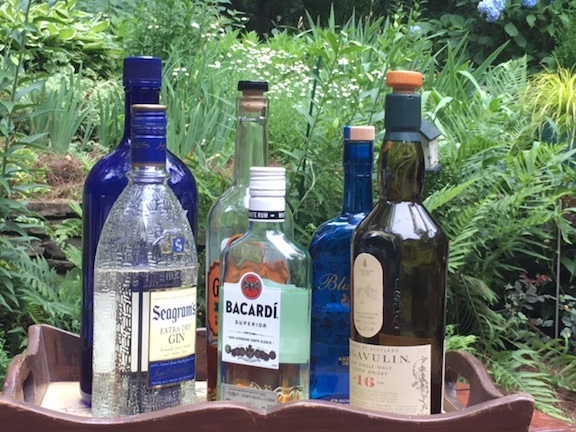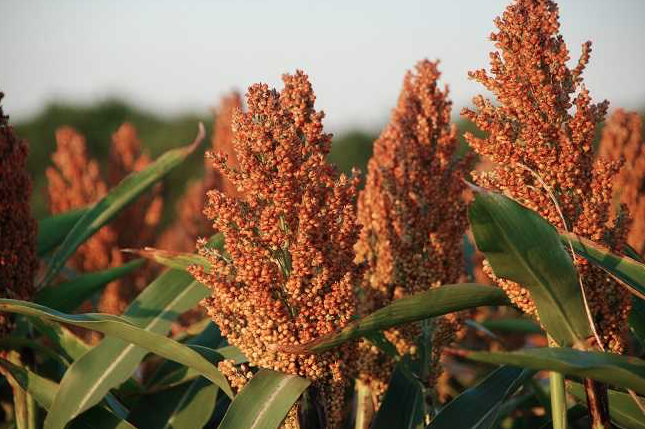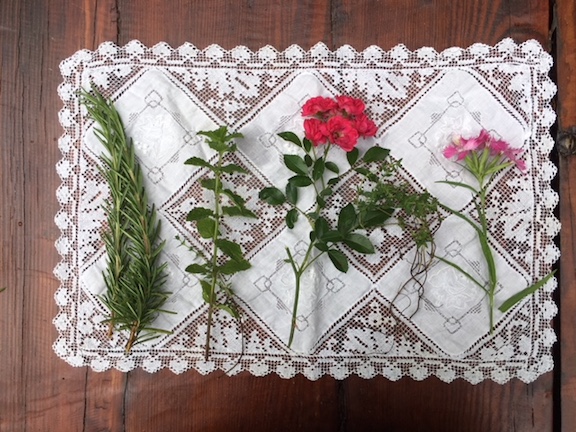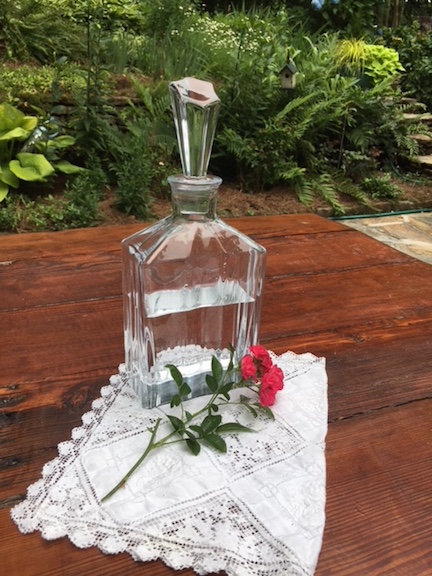
Everyone knows that wine comes from grapes and most people know that beer comes from malted grains, usually barley. But when you think about it, all alcoholic beverages come from some kind of plant. Well, that’s not entirely true, the poor nomads in Eastern Asia, lacking agriculture, fermented mare’s milk but it’s the exception rather than the rule. So, let’s raise a toast to the garden!! Without which our libations might be limited to fermented mare’s milk!

Humans have been drinking alcoholic beverages since before we could write. Anthropologists believe that even before we were fully human, our ancestors were picking up and enjoying the buzz that came from fermented fruits. As we became better at manipulating the fermentation process, we became more and more enamored with the effects of drinking.
Remnants of wine made from rice, fruit and honey have been found in a jar in China dating back more than 9000 years. Chica, a South American drink made from wild potatoes and wine made from palm trees in Africa also indicate that humans’ love affair with alcohol is thousands of years old.
Almost all liquor is made from yeast, water, some kind of fermented grain and flavoring. Manipulating these ingredients to produce the finest beverages has been the goal of mankind for a long, long time. Different plant material produces different results. In general:
- rice makes sake
- barely makes scotch (and beer)
- agave makes tequila
- sugarcane makes rum
- corn makes bourbon
- grapes make wine
Vodka, on the other hand, can be made from any starch or sugar-rich plant including sorghum, corn, rye, wheat, potatoes, molasses, soybeans, grapes, rice and sugar beets.

Amy Stewart, in her excellent book The Drunken Botanist says that “sorghum is probably the plant used to make alcohol more than any other.” Sorghum beverages range from homemade beer in Africa to a Chinese high-proof liquor.
The experts use all kinds of plants for flavoring – hops for beer, juniper for gin (it’s not legally gin unless it has juniper in it), smoky peat for scotch. But even if you’re not an expert, you can flavor your own liquors with many things right out of your own garden. If you want to infuse your own drinks, start with white spirits such as rum, vodka or gin and use what’s in season – berries, elderflowers, edible flowers or herbs.

You can add the plant material directly to the alcohol or you can make a simple syrup from flowers such as roses, violets, hibiscus, lavender or chamomile and add this to the liquor. Either way, it can be the garden in a shot glass.
So, if you didn’t think that you were a plant lover, think again. If you love your evening cocktail or a beer on a hot Saturday afternoon or a glass of wine with dinner, then you love plants! Unless, of course, you prefer fermented mare’s milk! Cheers!!!

Here’s a recipe for Rose Liqueur. Enjoy!
- 3 cups fresh rose petals (be sure they haven’t been sprayed!
- 2 whole cloves
- 1 cinnamon stick
- 1 cup sugar
- 4 cups vodka
Place rose petals and the vodka in a large jar with a tight-fitting lid. Steep for 2 days. Add sugar and spices. Steep for two more weeks, shaking vigorously a couple of times a day to dissolve the sugar. After 2 weeks, strain through a coffee filter, transfer to clean bottles and allow to sit 2 more weeks before using.
Don’t forget to check out the Nature Based Etsy store. You can get a bag to tote around all that liquor! http://www.naturebasedstore.etsy.com


But wait — fermented mare’s milk is plant-based, too. Mares don’t make milk on an empty stomach. They merely provide the grains’ first processing vat, on site and portable.